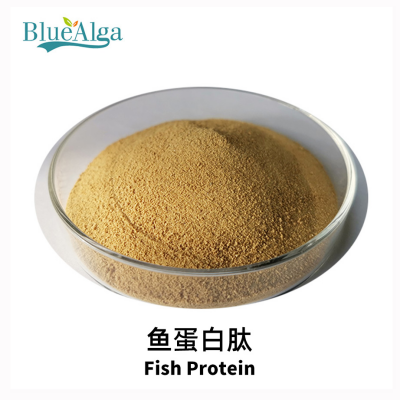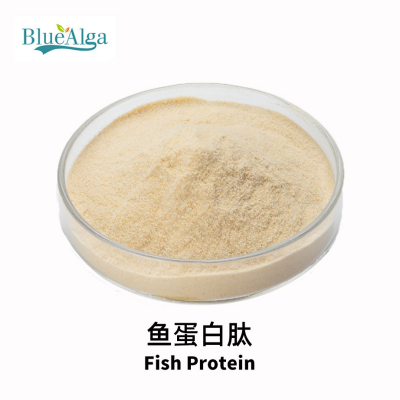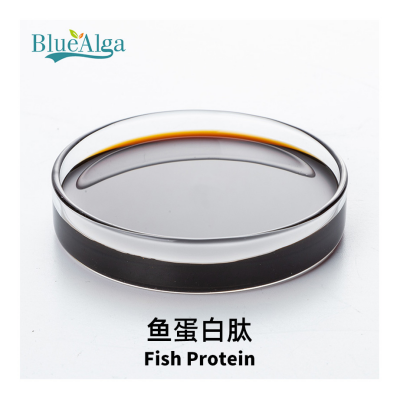Amino acids | peptides | fish protein farmers how to choose?
In recent years, the market appeared on the identification of amino acids, peptides, fish protein functional fertilizer, many farmers are relatively unfamiliar with this. What are they? What are their functions? And how to use? Today, with you to unveil the mystery of amino acid fertilizers.
You will find that most of the amino acids, peptides, fish protein fertilizer is applicable to the NY1429-2010 production standards, that is, containing amino acid water-soluble fertilizer standards. Then the question comes, why peptide, fish protein fertilizer with amino acid fertilizer together with the application of the standard? The answer, to start with their composition.
Peptides, proteins, the basic unit is amino acids. Multiple amino acids are linked together to form a peptide chain, forming a peptide; and one or more peptide chains are twisted and folded to form proteins. If the amino acid is compared to a pearl, then the peptide is a pearl necklace, and the protein is an artistic ornament made of pearl necklace.

Orange: Protein Green: Polypeptide Yellow:Oligopeptide Pink:Amino acid
Theoretically, amino acids are most easily absorbed by plants, but plant growth requires a variety of amino acids, and it is difficult to achieve the desired effect if only a few are supplemented. It can be said that the number of amino acid types is an important indicator of the effect of amino acid fertilizer. For example, the most common hair hydrolyzed amino acid solution contains more cystine and less other amino acids, and the effect is not as good as the amino acid solution extracted from low value fish.
In general, the more complex the ingredient, the more functional it tends to be. After crops absorb amino acids, they need to be processed into peptides in the body before synthesizing proteins for storage. Peptide fertilizers, which contain a variety of amino acids and can be used to synthesize proteins directly after being absorbed, eliminate the step of synthesizing peptide chains from amino acids and ensure the effectiveness of the fertilizer. At the same time, peptides have more functions than amino acids and are more likely to stimulate the crop and produce substances favorable to growth.
Fish protein, formed from low value fish through degradation, is mainly composed of amino acids, polypeptides and some proteins to form a mixture, in addition to some trace elements and lipids, vitamins and so on. Its composition is more complex, more versatile and more effective than amino acids and peptides.
Thousands of years ago, the Chinese have used amino acid fertilizers. The Book of Planting Trees of Tang Dynasty recorded that "to plant sugarcane, one must use pig's hair and soil", which means that mixing pig's hair with soil can plant good sugarcane. The main component of pig hair is protein, which becomes peptide or amino acid after degradation in the soil. In the Ming Dynasty, Xu Guangqi's book "Bei Keng Lu" recorded that animal offal and carcasses were used to prepare "dung dan", and the main components of animal offal and carcasses after degradation were amino acids. In ancient times, "dan" refers to essence, something with strong effect, which shows the obvious effect of its fertilizer.
Amino acid fertilizer obvious effect, from ancient times, have been recognized. However, in ancient times, people's productivity level is low, they eat very little meat, not to mention the fertilizer, the limited production limits this kind of fertilizer to become something familiar. With the advancement of technology, large quantities of offal, carcasses, and hair from slaughtered animals provide a large amount of raw material for the production of fertilizers. Even so, to turn offal and carcasses into amino acids, many processes are needed. After all, offal and carcasses are still mixed with fat and other organic matter, and it is not easy to process them to transform or eliminate them. In particular, when people began to produce large quantities of amino acid fertilizers, the land can provide raw materials of poor quality, limited yield, after all, the best proteins are used to make meat products, no one will slaughter a cow to make fertilizer.
Therefore, enterprises and experts will look from the land to the ocean, reaching out to the ocean for nutrition. The ocean, the world's largest treasure trove of protein, where people have found both cheap, high quality, the production of amino acid fertilizer the most ideal material - low value fish. Because it does not meet the standards for human consumption, low value fish are less valuable after capture, but because they are rich in protein, they are processed and degraded to make fish protein fertilizers rich in amino acids.



Use according to crop characteristics
All three types of fertilizers can play a strong crop, improve resistance, increase yield and improve quality. However, care should be taken to use them precisely according to their respective characteristics and the actual crops in order to achieve the desired effect of economic efficiency.
From the cost point of view, amino acid liquid fertilizer cost the lowest, followed by peptide and fish protein; from the composition point of view, fish protein composition is the most complex, followed by peptide, amino acid is the simplest; from the function point of view, in general, fish protein, peptide function and effect is more significant than the amino acid, of course, the content of the ingredients of different products, the production process varies, the specific should be based on the actual situation to judge.
If the purpose is to improve the utilization rate of fertilizer, accelerate the absorption of nutrients and supplement trace elements, then it is recommended to use amino acid fertilizer. The cost of these products is low, and mixed with other inorganic fertilizers, it can effectively improve the utilization rate of inorganic fertilizers, and at the same time, it can alleviate the acid-base changes in the soil to a certain extent.
If the purpose is to improve crop resistance to the damage caused by adverse environment (low temperature, drought, flooding, drug damage, etc.), then it is recommended to use peptide and fish protein fertilizers. Fish protein fertilizers, in particular, are remarkable for improving crop resistance to low temperatures. The reason is that fish protein, in addition to containing a variety of amino acids, but also contains a portion of unsaturated fatty acids. These unsaturated fatty acids, absorbed by the plant can maintain the fluidity of the cell membrane, maintain the integrity of the cell membrane, reduce the freezing point of the water in the plant body, this function is amino acids and peptides do not have. In addition, fish protein also contains vitamins, phospholipids, trace elements and other nutrients, also superior to amino acid solution.
For high-quality peptide and fish protein fertilizers, in order to save costs and improve fertilizer absorption rate, it is best to take foliar spraying, while for amino acid fertilizers, flushing spraying can be. Because peptide, fish protein fertilizer molecular weight, a large part of the nutrients need to be absorbed through the stomata, when spraying peptide, fish protein fertilizer, it is best to do the front of the leaf, the back of the uniform spray (the number of stomata in the back of the plant leaf is greater than the front), which can improve the absorption of these fertilizers, get better results. In addition, peptides, fish proteins and copper sulfate, copper sulfate and other copper preparations mixed will lead to protein denaturation, resulting in precipitation, seriously affecting the use of the effect, the use of which should be extra careful.
Farmers should also be reminded that the use of amino acid-containing fertilizers have some special characteristics. First, these fertilizers have a smell, the higher the concentration of odor, according to different sources there will be a soy smell, fish smell, etc., but never an aromatic smell. Secondly, amino acid-containing fertilizers are easy to be decomposed by microorganisms and produce pungent ammonia gas after being left in the open air for a period of time. Therefore, it should be used up as soon as possible after opening, and should not be left open for too long, so as not to be decomposed by microbial infections in the air, which will affect the use of the effect.



 Mobile: 86-13012553585 15610518510
Mobile: 86-13012553585 15610518510 Phone (Fax):86-53283197178
Phone (Fax):86-53283197178 E-mail:
E-mail:  Add:No.918 Lingang 8 Road Huangdao District,Qingdao China 266400
Add:No.918 Lingang 8 Road Huangdao District,Qingdao China 266400

